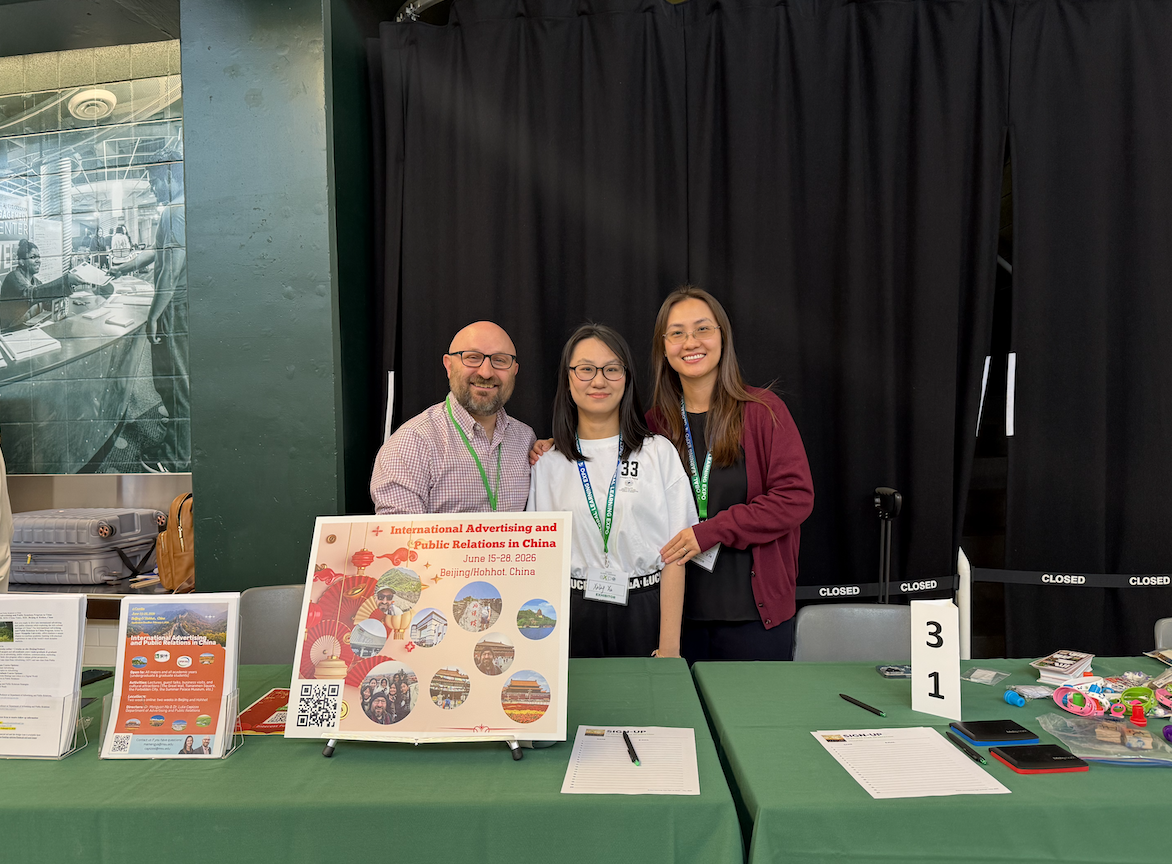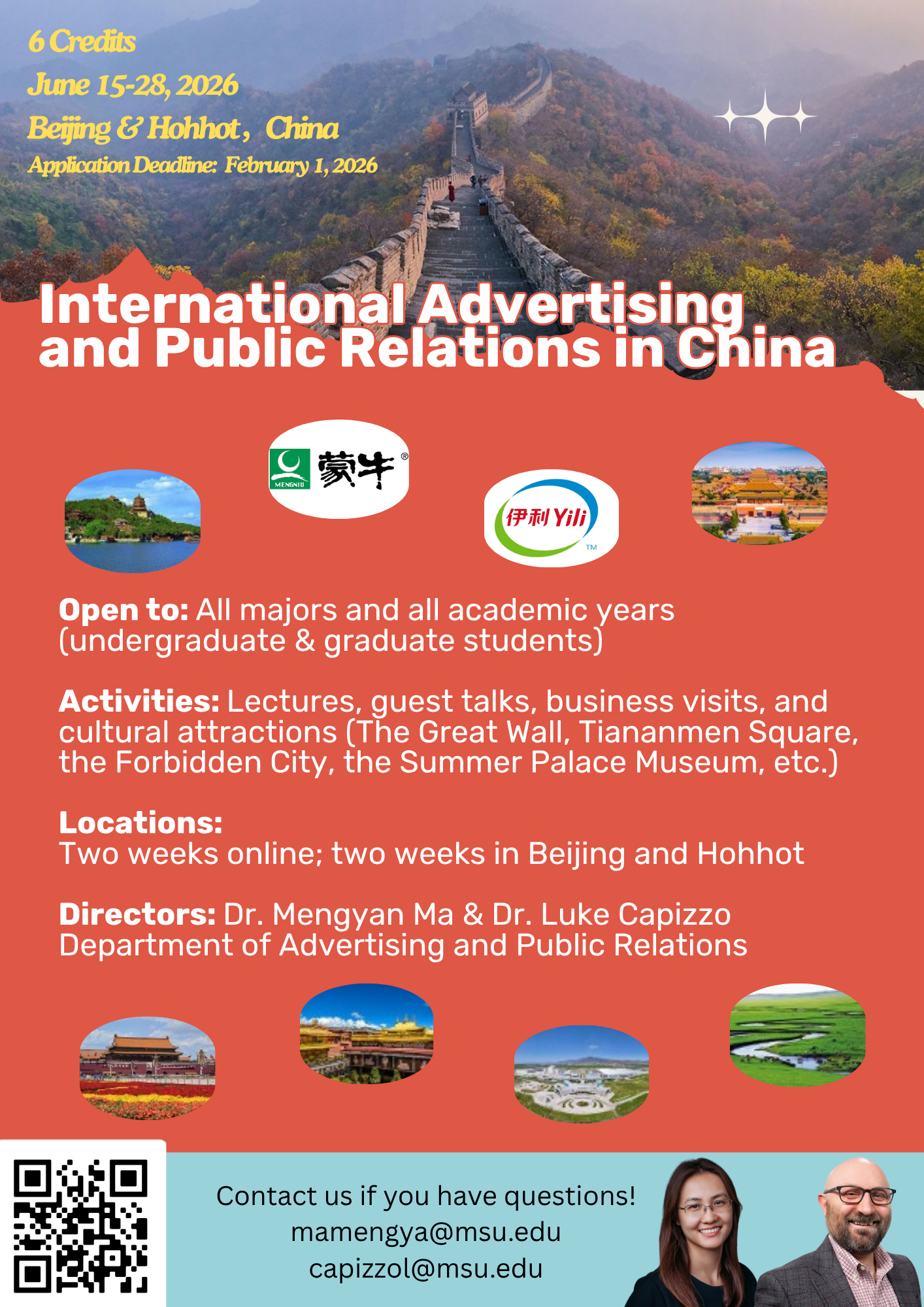
Teaching experience
Since 2015,I have been teaching undergraduate courses across various formats, including in-person, synchronous, and asynchronous modalities.
-

Consumer Behavior
This course explores the theories and applications of consumer behavior, examining the cognitive, affective, and behavioral components that influence purchasing and consumption decisions. The focus is on translating theory into practice by equipping students with techniques to analyze consumers effectively for segmentation, targeting, and brand positioning. The course involves reading, writing, research (primary and secondary), and campaign design. A client project and group discussions are a vital part of the learning process.
-

Intermediate Social Media and Public Relations
This class gives students a basic understanding of real-world writing techniques they will be expected to know and understand as a PR practitioner. The course will detail various communication materials and give students hands-on experience crafting them (e.g., bio, news release, backgrounder, social media content, e-blast, personal website). Finished written materials will target various audiences and media.
-

principles of advertising
This course introduces many different facets of advertising. We cover how advertising was established, how it has evolved, the techniques that advertisers use, and the effects of advertising on consumers and on society. We also discuss regulations and ethics, and cultural implications of the industry and its products. On completion of this course, students should have clearer understanding of how advertising is situated within the broader field of communication and the basic principles of how effective advertising messages are created and distributed. The course also provides an understanding of how social, cultural, and global issues affect and are affected by advertising. Lastly, students learn how to be both a better message creator and a more critical message consumer.
-

Basic Skills for Advertising Careers
This is an integrated course that equips students with the skills necessary for proficient business writing and effective content marketing. The course covers key aspects of business communication, including internal and external documents, web content, and presentations. Students learn how to craft press releases, proposals, and various business communications with clarity and precision. In the content marketing segment, students explore strategies for creating engaging content across different formats, from blogs and videos to infographics and podcasts. The course also emphasizes the importance of SEO, social media engagement, and online advertising to drive marketing success. Through practical exercises and real-world applications, students gain hands-on experience and develop a robust skill set for modern business environments.
-

advertising management strategies
This course provides a comprehensive look at how advertising agencies operate from the perspective of an advertising manager. During the semester, students discover how advertising managers supervise and collaborate with creatives, account executives, media planners and others within an integrated marketing communications framework. Emphasis is placed on the creative process, media strategy, research implementation, legal and ethical codes, and agency-client relationships.
-

Consumer Behavior
This course explores the theories and applications of consumer behavior, examining the cognitive, affective, and behavioral components that influence purchasing and consumption decisions. The focus is on translating theory into practice by equipping students with techniques to analyze consumers effectively for segmentation, targeting, and brand positioning. By the end of the course, students will be better prepared to make informed decisions as future advertising and public relations practitioners, ultimately serving their clients and consumers more effectively.
-

Social Media Analytics
In this class, I teach audience analysis, social monitoring, social listening, competitive analysis, content analysis, data-driven content strategy, SMART objectives, and evaluation plan. Students form groups to work on a client project. The groups choose one client to work for. Their mission is to design a data-informed social media strategy for that client, in order to help the client meet their social media goals. This project gives them opportunity to work with real clients’ Facebook and Twitter data.
-

Advertising Message strategy
This course provides lectures, current case studies, group assignments, and engaged activities that help students in developing a strong advertising skill set to take to future job and/or internship interviews in their respective field of study. Students criticize a client's current advertising campaign, analyze the strengths of the brand's current identity, conduct primary and secondary research for the client, and build a campaign for the client.
-

research methods
This 3-week asynchronous course introduces the nature of the social scientific research with emphasis on the research process and design. More specifically, students learn research ethics, measurement, validity and reliability, sampling, different methods of gathering information (quantitative and qualitative), and data analysis using SPSS.
-

Writing for integrated strategic communication
In this class, students (1) learn the advantages, limitations, and writing strategies necessary for different mediums (e.g., print, broadcast, digital, social) and various formats of information presentation; (2) have the skills to identify and assess target audiences to best tailor integrated strategic communication messages; (3) know best practices within the industry to inform their writing, thereby making it more effective; (4) write with clarify and accurate, using correct spelling, grammar, tone, and AP style; (5) come away with a useful tool-kit for various formats to use in their careers as integrated strategic communication professionals.
-

Media Law and Ethics
The purpose of this course is to (1) inform students how laws and policies shape media, communication systems, industries, and content. Students learn specific laws that guide the work of communication practitioners and journalists, including intellectual property, privacy, obscenity, electronic media regulation, etc. (2) help students think critically about the mass communication media and their roles in modern society. We attempt to discern differences as well as similarities on ethical issues in such areas as news, entertainment programming on radio and TV, public relations, advertising, and online communication. These inquiries are all aimed at helping students understand how and why to make ethical choices regarding the mass media.
-
Other Courses
Media Planning
Digital Analytics
Account Planning and Research

International Advertising and Public Relations in China
Dr. Luke Capizzo and I are co-directing a summer Education Abroad Program offering students the opportunity to blend academic learning with practical experience in one of the world’s most dynamic markets.
We presented our program at MSU Global Learning Expo Event in October 2024, and October 2025, and hosted information sessions that accommodated both in-person and Zoom participants in December 2024 and February 2025.
